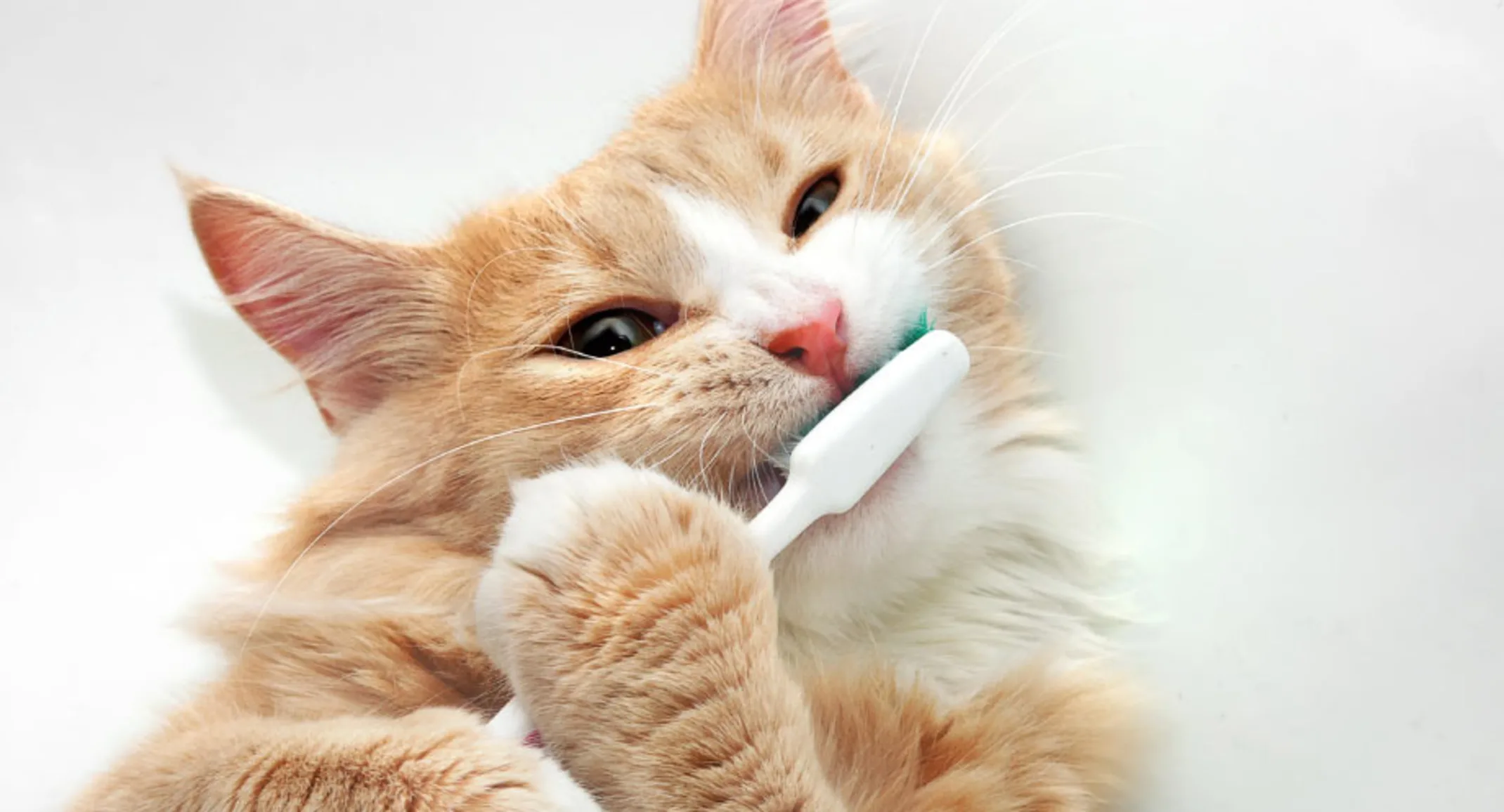February 9, 2022 by Hanford Veterinary Hospital
Dental care for dogs and cats is an often overlooked area of pet care. While pet dental disease can certainly cause that pesky dog breath, it is much more serious than just stinky kisses. Unfortunately, over half of pets will have some form of dental disease by the age of two. Learn why good pet dental care can extend an animal’s life expectancy by up to five years.
Dental Disease Can be Deadly
Dental disease in pets is just as serious as it is in people. It begins when bacteria in the mouth attach to the teeth to form a sticky film called plaque. We are pretty good about brushing this off in our mouths, however most pets are not. Over time, the plaque begins to mineralize and forms hard tartar, which is much more difficult to remove.
Besides tartar buildup, irritation from plaque and tartar can cause the gums to become inflamed with infection (gingivitis). This has the potential for serious consequences, some deadly.
Tooth root infection–
As the bacteria on a diseased tooth takes hold, it can start to break down the periodontal ligament that holds a tooth in place. This can cause the loosening or loss of the tooth, which can be very painful. The infection surrounding the tooth can also cause local bone infection and, if untreated, gain access to the bloodstream. This is called sepsis.
Heart disease–
Bacteria in the bloodstream is prone to settling in the heart and attaching on its valves. This can cause inflammation of the heart muscle (called endocarditis) and may result in heart failure.
Damage to other vital organs–
This blood-borne bacteria has also been shown to cause microscopic damage to other organs including the kidneys and liver as well. Injury to these organs can cause significant disease.
Luckily, dental disease in pets is very manageable. It is important for pet owners to be aware of their pet’s oral health and take responsibility for caring for their pet’s mouth.
How to Tell if Your Pet Has Dental Disease
Every time your pet comes in for an exam we will examine his or her mouth and be sure to bring it to your attention if there are signs of dental disease. However, be sure to let us know however if you notice that your pet is experiencing:
Bad breath
Obvious tartar buildup
Red, swollen gums
Bleeding or loose teeth
Drooling
Change in eating habits
Pain when the mouth is handled
Good Pet Dental Care
All pets deserve good dental care during their lifetime. In fact, providing pet dental care is arguably one of the most important things you can do for your pet’s happiness and longevity. Be sure to:
Bring your pet in for a wellness exam, including an oral exam, at least once a year
Provide at-home dental care–toothbrushing is one of the most beneficial things you can do, but other things such as dental treats, rinses, and diets can also be helpful
Keep up on routine dental cleanings under anesthesia as recommended
Who doesn’t want to add years to their pet’s life? Good pet dental care is an easily obtainable way to accomplish this. Simply paying attention to your pet’s mouth and following recommendations is all you have to do to keep your beloved family friend happier and healthier.

